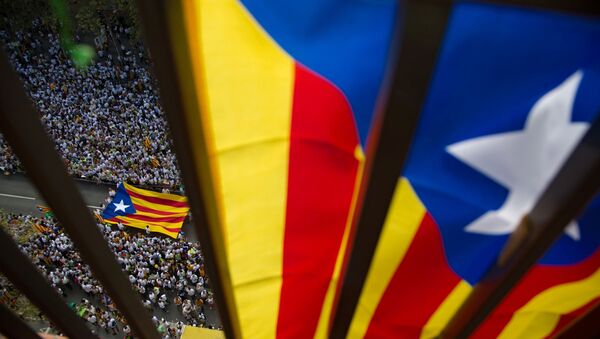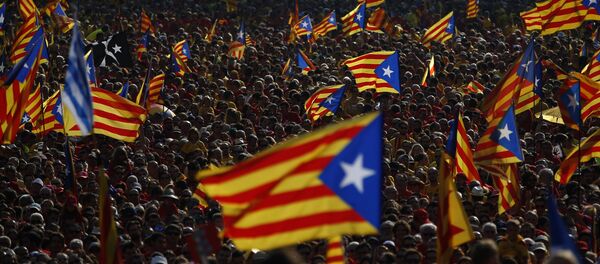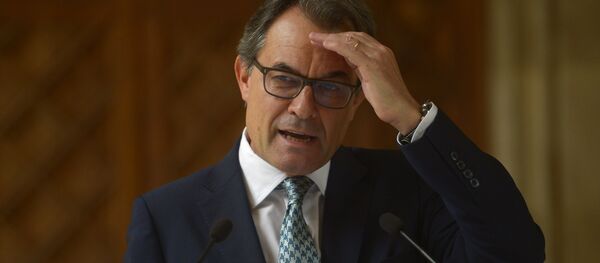According to article 155 of the Spanish constitution, an autonomous community can be forced to submit to the central government if the community's actions are judged by the central government as being a threat to national interests.
"If the moment comes, we will apply it [article 155]," Catala said in an interview with Onda Cero radio station.
The minister said that, alongside the constitution, the central government has several legislative instruments to prevent the autonomous region from secession, including the use of the Spanish Constitutional Court.
In November 2014, over 80 percent of Catalans participating in an unofficial secession vote supported the move. More than two million out of an estimated 5.4 million eligible voters took part in the non-binding ballot. Catalan President Artur Mas was accused by the central government of Spain of civil disobedience and abuse of power following his organization of the vote.
In September, the pro-independence Catalan Junts pel Si (Together for Yes) coalition and their allies from the radical left-wing Popular Unity Candidacy (CUP) party secured 72 seats in the 135-member regional parliament.
According to Catalan leaders, election result give the parties a clear mandate to form an independent state of Catalonia.




